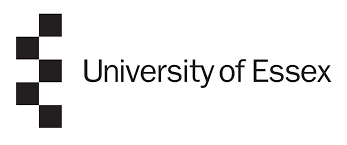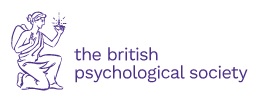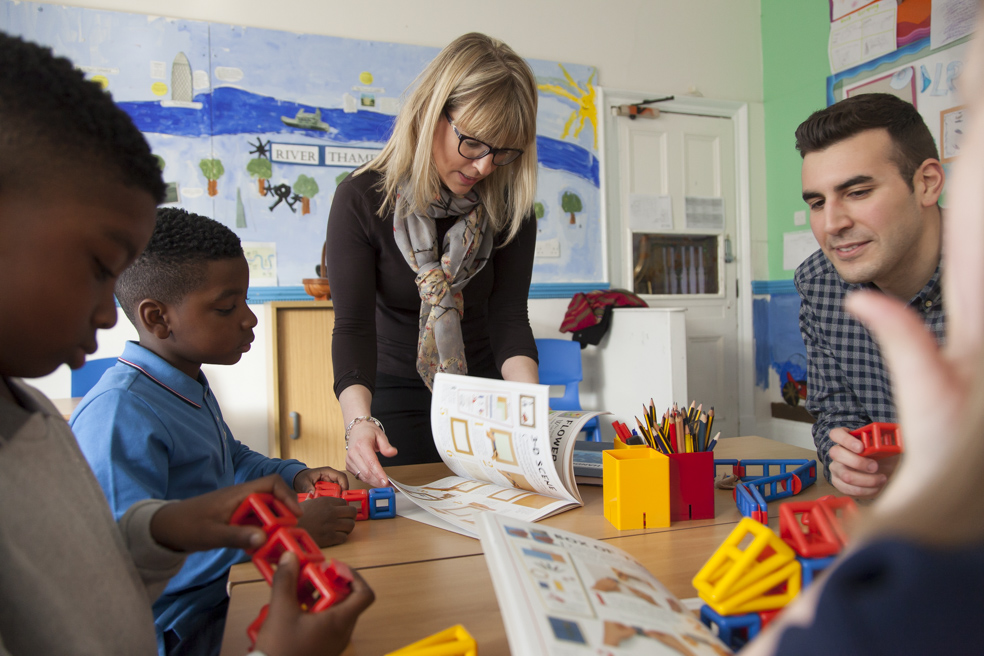
Child, Community and Educational Psychology (M4)
Qualify as a registered practitioner educational psychologist with this doctorate course, validated by the University of Essex
Completing this three year, full-time course will enable you to work as a The Health and Care Professions Council (HCPC) |-registered practitioner educational psychologist, and to be chartered with the British Psychological Society (BPS).
Taught in-person, this highly regarded professional doctorate training course is validated by the University of Essex and accredited by the British Psychological Society (BPS) and Health and Care Professions Council (HCPC).
Applications to this course are made via the Association of Educational Psychologists (AEP). Please see the entry requirements tab for more details.
Applications for this course are now closed for September 2026 entry. Please register your interest to be notified when applications open for 2027 entry.
About this course
The Trust has a long-standing reputation for innovation and thought leadership, nationally and internationally, and the course draws heavily on applying systemic, psychodynamic and attachment-informed perspectives to professional psychological practice in schools and in communities.
We emphasise understanding oneself in the professional role and the ways in which relationships influence all aspects of support and intervention for children, young people, families, schools and other services in the community.
Valued features of our programme include:
- our practitioner-academic approach where those who see our patients teach our trainees
- the central significance of experiential learning and a variety of opportunities to engage in such learning, including participation in a Group Relations Conference
- training in a working mental health Trust alongside students from a range of other disciplines and modalities including psychotherapy, clinical psychology, social work and family therapy
- a multi-disciplinary placement in the first year within either one of the Trust’s child and adolescent mental health teams or a community setting
- a privileging of supervisory relationships with a committed and thoughtful personal supervision team
- an emphasis on reflection individually and in groups, and attention across all three years to group process and group dynamics
- creative application of technology-enhanced learning, including the use of video to support professional development
Over the three years, you will learn experientially and through lectures, seminars, tutorials and workshops. You will gain professional experience through placements in child and adolescent mental health and educational psychology services. The overall aim of the programme is to equip our students with the knowledge, understanding and skills needed to practise ethically, effectively and responsibly.
You will follow the British Psychological Society (BPS) core curriculum with modules covering child and adolescent development, assessment and intervention and research. Two additional modules account for psychodynamic, systemic and attachment perspectives (Psychological Frameworks) and the place of consultation in applied practice (Professional in Context).
All modules attend to:
- the ethical component of practice across the five core functions of assessment, intervention, consultation, training and research
- cultural responsivity in educational psychological practice, reflections on sameness and difference and the capacity to work towards a more socially just and fair society for all
Year one
You will follow the BPS core curriculum, covered by four modules:
- Assessment and intervention/child development (CHAI)
- Professional in context (PiC)
- Research
- Psychological frameworks (PF)
You will focus on the individual-in-context (for example, the toddler in the context of the early years setting, or the adolescent in the context of the secondary school and family). In the Autumn term, you will complete a weekly Nursery Observation in a local setting. You will also undertake a one-day-a-week placement in a community/CAMHS team working within a multi-disciplinary team of trainees and experienced, qualified clinicians and an additional placement in a London Educational Psychology Service (EPS) where you are supervised by one of our fieldwork tutors. EPS placement locations vary according to service arrangements with the Trust; as an illustrative example for 2025-26 we have placements in Haringey, Islington, Lewisham, Enfield, Southwark, Camden and Harrow.
Year two
In general, three days a week in the second year are spent on placement. This amounts to 130 days across the year. In year two, you will focus on groups and you will be required to facilitate either an adult or a children’s group as part of your learning under supervision.
You will also attend a week-long Group Relations Conference. You will be supported in practising Acceptance and Commitment Therapy (ACT) based casework and you will continue with Research, CHAI and PF modules. The research module will involve planning and initiating your doctoral research project.
Year three
In your third year, the focus of study is on organisations and you will carry out supervised organisational development work in your placement. You will complete your doctoral research study, which is expected to extend the knowledge and evidence base in educational psychology practice. This will be supervised and submitted as a 40,000 word thesis. You will complete a further 130 days on educational psychology service placement, again usually three days per week.
Modules
Module 1: Child Assessment, Intervention and Special Educational Needs & Disabilities 1
Foundations of Educational Psychology Assessment and Intervention
- Year one
- FHEQ level 8
- 15 credits
- Core and compulsory module
- Module lead: Dr Katy Cole
Module aims
The aims of the module are to:
- introduce you to the principles of psychological assessment and how to use a range of executive frameworks and theoretical lenses to structure assessment practice, and knowledge of this can be applied on practice placements
- build experience in using a range of assessment tools suitable for different age ranges and developmental needs, particularly focusing on learning and cognition, such as psychometric assessment, dynamic assessment, observation, and play-based assessment
- develop knowledge of key issues in assessing a range of specific learning needs such as difficulties with literacy, numeracy, social skills, executive functioning, and language and communication skills (including autism)
- begin to explore suitable interventions for a range of learning and developmental needs
- gain knowledge of the current legislative and context factors for EP assessment and intervention work, including diversity and inclusion
- consider developing assessment and intervention skills in relation to professional ethics and culturally responsive practice
Module assessment
You will write a scoping review and a briefing report to explore the educational needs of children and young people with an identified area of need.
Module 2: Psychological Frameworks 1
Interior Lives in Social and Cultural Contexts: Theoretical Foundations
- Year one
- FHEQ level 8
- Non-credit bearing
- Core and compulsory module
- Module lead: Kay Richards
Module aims
The aims of the module are to:
- introduce core psychological theoretical perspectives and contemporary psychoanalytic ideas as they apply to EP practice, including introducing psychoanalytic approaches to infant and young child observation
- develop your understanding of systemic approaches to working with children, families and schools
- introduce you to assessment and formulation using projective techniques
Module assessment
You will engage in a reflective conversation with a trained child and adolescent psychoanalytic psychotherapist based upon their sequence of observations of a young child in a nursery setting.
Module 3: Research 1
Exploring Practitioner Research
- Year one
- FHEQ leve 8
- 15 credits
- Core and compulsory module
- Module lead: Dr Lisa Bostock
Module aims
The aims of the module are to:
- develop your identity, knowledge and skills as a practitioner-researcher
- enhance and consolidate understanding of core research principles, design, ethics and methods
- develop your ability to critique existing research literature, synthesise understanding to generate a rationale and purpose for further doctoral study.
Module assessment
You will provide a pre-recorded presentation that demonstrates your application of research concepts to real world problems in context.
Module 4: Professional in Context
- Year one
- FHEQ level 8
- 30 credits
- Core and compulsory module
- Module lead: Dr Emma Ní Chinnéide
Module aims
The aims of the module are to:
- introduce and provide opportunities for you to apply practice frameworks to work as an applied psychologist, and to pay particular attention to the central significance of relationships and relating in the context of effective and reflective practice
- enhance your capacity to think analytically and systemically about issues and experiences of work as psychologists, in particular the person-in-role
- develop understanding, knowledge and skills in consultation to enable you to work effectively as a professional-in-role-in-relationship with others, and to practice safely within legal and ethical boundaries
- cultivate ethical thinking and culturally responsive, anti-oppressive practice
The provision of effective supervisory opportunities alongside the academic and professional practice elements of the programme further support your reflection and learning about the networked intra-psychic, inter-personal and systems context of applied professional practice.
Module assessment
You will analyse video recordings of consultation and provide a structured reflective commentary.
Module 5: Professional Practice Placement 1
- Year one
- FHEQ level 8
- 60 credits
- Core and compulsory module
- Module lead: Dr Ben Craik
Module aims
The aims of the module are to:
- provide a comprehensive breadth and depth of training for work as an educational psychologist in role
- understand and manage effectively the complex range of demands made on them in a professional, rigorous and robust way
- support your critical reflection on the intersections between their identities, values and ethics and those with whom they work; creating a tolerance for ambiguity, a capacity to work with sameness and difference and in anti-oppressive ways
- ensure you receive and act on feedback from service users to continuously reflect on and enhance their practice
- sustain strong working partnerships between trainees, the course tutors, wider community teams, including those in the Trust itself, and local EPS’s
Module assessment
You will complete a professional practice placement portfolio. There is a further core and compulsory but non-credit bearing element of assessment, where the your supervisor provides an evaluation of the your performance on placements.
Module 6: Child Assessment, Intervention and Special Educational Needs & Disabilities 2
Advanced Practice in Educational Psychology Assessment and Intervention
- Year two
- FHEQ level 8
- 30 credits
- Core and compulsory module
- Module lead: Dr Katy Cole
Module aims
The aims of the module are to:
- build on the knowledge and skills developed during your first year of training
- apply these skills within the context of the EPS/Children’s Service in which they are working
- develop therapeutic skills, particularly skills in Acceptance and Commitment Therapy (ACT) based DNAV therapeutic intervention for children and young people (ACT-DNAV). DNAV refers to the skills explored within the model (Discoverer, Noticer, Advisor and Valuer)
- integrate your knowledge of child development, theories and models of psychology and evidence-based practice to develop their skills in assessment and intervention
- develop skills in training others and supporting them to implement interventions at an individual, group or whole school level
- understand how to promote social justice, equity and inclusion in their role
Module assessment
You will create a webinar on an intervention of their choice, linked to their placement context, with a reflective commentary.
Module 7: Research 2
Becoming a Practitioner-Researcher
- Year two
- FHEQ level 8
- 30 credits
- Core and compulsory module
- Module lead: Dr Lisa Bostock
Module aims
The aims of the module are to:
- strengthen your identity, knowledge and skills as a practitioner-researcher and support you to design, plan and implement robust, ethical doctoral research projects
- enhance your understanding of core research principles, design, ethics and methods and enable them to critically apply them to their own research, ensuring timely progression of the initial stages of their research projects
- consider the ethical implications of their research and obtain appropriate ethical approval and local permissions prior to undertaking any fieldwork with human research participants
- encourage you to think critically about different types of research impact, reflect on the intended impact or contribution of their research to the wider professional field and identify pathways for creating impact
- develop your understanding of how a doctoral thesis is typically structured, supporting them to complete initial draft chapters
Module assessment
You will write a research proposal.
Module 8: Psychological Frameworks 2
Theorising the ‘Group’: Psychodynamic and Systemic Foundations for Practice
- Year two
- FHEQ level 8
- 15 credits
- Core and compulsory module
- Module lead: Kay Richards
Module aims
The aims of the module are to:
- commission, contract and facilitate a group focusing on the needs of children, young people, parents & carers or staff members
- develop your understanding of group dynamics and processes in a work context, including in their own experiential group
- develop your understanding of key theories of group development and membership and begin to apply these to their own experiences in role
- apply taught systemic and psychoanalytic concepts to their own work and to critically reflect on theoretical ideas as a means of understanding the needs of children, young people, their families and those who work to support them.
Module assessment
You will provide a reflective account of their groups work.
Module 9: Professional Practice Placement 2
- Year two
- FHEQ level 8
- 45 credits
- Core and compulsory module
- Module lead: Dr Ben Craik
Module aims
Alongside meeting accrediting bodies’ requirement for supervised placement, etc., the aims of the placement are to:
- provide a range of opportunities to further develop and extend a coherent sense of professional identity as a psychologist-in-role
- create space to reflect on questions such as ‘…what kind of Educational Psychologist (EP) do I want to be?…’, ‘…what is important to me as a psychologist?…’, ‘what core values and principles drive my work?’ and ‘…how do I want to practice?…’
- provide a comprehensive breadth and depth of training for work as an educational psychologist in role
- understand and manage effectively the complex range of demands made on them in a professional, rigorous and robust way
- support your critical reflection on the intersections between their identities, values and ethics and those with whom they work; creating a tolerance for ambiguity, a capacity to work with sameness and difference and in anti-oppressive ways
- receive and act on feedback from service users to continuously reflect on and enhance their practice
- sustain strong working partnerships between trainees, the local authority placement providers, Tavistock staff and all other relevant stakeholders
Module assessment
You will complete a professional practice placement portfolio. There is a further core and compulsory but non-credit bearing element of assessment, where the your supervisor provides an evaluation of the your performance on placement.
Module 10: Psychological Frameworks 3
Organising for Access, Equity and Inclusion: System-Psychodynamic Approaches to Working with Whole Systems
- Year three
- FHEQ level 8
- 15 credits
- Core and compulsory
- Module lead: Kay Richards
Module aims
The aims of the module are to:
- build on your critical understanding of developmental, psychodynamic and systemic theory covered during the first and second years of the course
- further develop and apply this learning to enhance understanding of organisational dynamics and processes
- in organisational change, link individual work into organisational initiatives, evaluation or change projects within an organisation, protocol or policy development, practice development through training and so on.
Module assessment
You will provide a reflective account of their organisational analysis and change work.
Module 11: Research 3
Being a Practitioner-Researcher
- Year three
- FHEQ level 8
- 240 credits
- Core and compulsory module
- Module lead: Dr Lisa Bostock
Module aims
The aims of this module are to:
- reinforce and consolidate your identity, knowledge and skills as a practitioner-researcher and support submission of your doctoral thesis
- complete the substantive elements of their research projects, including data collection and analysis to agreed timescales
- develop your academic writing skills through the process of drafting and re-drafting individual thesis chapters, ahead of collating into a well-structured, coherent thesis in line with Quality Assurance Agency (QAA) Frameworks for Higher Education Qualifications (FHEQ) Level 8 learning descriptors, American Psychological Association (APA) style guidelines and the University of Essex thesis submission policy
- prepare you for the viva voce following submission of their thesis, making any corrections examiners require ahead of awarding the research degree to enable you to qualify and register with the HCPC and take up post-training employment as qualified practitioner EPs.
Module assessment
You will write a doctoral level research thesis.
Module 12: Professional Practice Placement 3
- Year three
- FHEQ level 8
- 45 credits
- Core and compulsory module
- Module lead: Dr Ben Craik
Module aims
The aims of the module are to:
- provide a range of opportunities to further develop and extend a coherent sense of professional identity as a psychologist-in-role
- create space to reflect on questions such as ‘…what kind of Educational Psychologist (EP) do I want to be?…’, ‘…what is important to me as a psychologist?…’, ‘what core values and principles drive my work?’ and ‘…how do I want to practice?…’
- provide a comprehensive breadth and depth of training for work as an educational psychologist in role
- understand and manage effectively the complex range of demands made on them in a professional, rigorous and robust way
- support your critical reflection on the intersections between their identities, values and ethics and those with whom they work; creating a tolerance for ambiguity, a capacity to work with sameness and difference and in anti-oppressive ways
- ensure you receive and act on feedback from service users to continuously reflect on and enhance their practice
- sustain strong working partnerships between trainees, the local authority placement providers, Tavistock staff and all other relevant stakeholders
Module assessment
You will complete a professional practice placement portfolio. There is a further core and compulsory but non-credit bearing element of assessment, where the your supervisor provides an evaluation of your performance on placement.
Course details
In line with national training requirements, applicants need to:
- have the minimum of a psychology degree (with honours, preferably 2:1 or above) or a qualifying conversion course or Master’s degree, with eligibility for the British Psychological Society (BPS) Graduate Basis for Chartered Membership (GBC). You can check your eligibility with the BPS and please note that you must have achieved eligibility before the application deadline. If the qualification that grants you eligibility for GBC is not from the UK or Ireland, you will also be required to enter your BPS membership number at the application stage
- have gained a minimum of one year’s full-time (37 hours a week or the equivalent if part-time) experience of working with children and young people by the application deadline. This is usually within an educational, health, social care, youth justice, childcare or community setting. This experience might include teaching, learning and behaviour mentoring, being a teaching assistant, social worker, speech and language therapist or assistant psychologist. This minimum experience can be made up of all paid employment, or at least nine months full-time paid employment (or the equivalent if part-time) and the equivalent of three months sustained relevant voluntary experience. Any additional paid or voluntary experience over the one-year minimum requirement should also be included in applications as the length, depth and range of experience may be taken into consideration in selection
To be successful in your application to the course, it is more than meeting the entry requirements above. It is crucial that you consider ‘fit’ and whether what we offer would be a good ‘fit’ for you as a learner.
We are seeking applicants who are curious and interested about themselves and others; who can make, sustain and end professionally helpful relationships with others and who have excellent communication and engagement skills. A knowledge of the breadth and depth of the Educational Psychologist’s role, as well as the diverse age groups, developmental phases and contexts within which we work is key on entry. We expect our trainees to acknowledge and be respectful of difference, to understand and appreciate structurally embedded inequities that act as barriers to all people flourishing and to take a culturally responsive stance in all of their work.
Other requirements on entry that we use to inform our recruitment and selection include:
- An ability to reflect on your work and both give and receive feedback oriented towards growth
- An understanding of relevant legislation, statutory guidance and professional practice standards including but not limited to the Equality Act (2010), relevant special educational needs and disabilities law and guidance, safeguarding procedures, etc.
- A capacity to apply principles of inclusion, equity of opportunity, anti-discriminatory approaches, and an appreciation of difference to practice with children, young people, their families and the systems within which they are living/growing
- Capability in the application of psychology to real-world practice and in keeping up-to-date with the evidence base
- Knowledge and skills relevant to undertaking research and motivation, interest and ability to develop these into a doctoral level researcher
You must also be able to demonstrate a good command of oral and written English. If English is not your first language, you must be able to evidence a good standard of written and spoken English. An overall IELTS grade between 7.0 and 8.0, with a minimum of 7.0 in each of the sub-tests, is required.
Application timings
Applications to this course for a DfE funded place are made centrally via the Association of Educational Psychologists (AEP) website, where further details about entry for the coming academic year can be found.
AEP also offer an eligibility questionnaire, which is designed to assess your eligibility for the scheme through a preliminary evaluation.
Please note that we intend to hold interviews the week beginning Monday 26 January 2026.
Due to a large volume of requests, we are unfortunately no longer able to provide individual feedback on applications or interviews.
This course is funded by the Department for Education.
Bursaries in year one for funded trainees
For government funded trainees at course centres in London, fees and a bursary is paid in year one. The amount is set by the Department for Education and is provided by them. Costs of travel to and from placement must be met by trainees. Please refer to the Association of Educational Psychologists (AEP) for details on the bursary amounts.
Bursaried placements in years two and three
In years two and three, placements are undertaken in Educational Psychology Services in the South East and London (SEAL) regions only. Allocations of placements are made towards the end of year one by a placement panel of Principal Educational Psychologists with Trainee Educational Psychologist (TEP) observers and course director representation. Trainees typically undertake 130 days of placement annually in years two and three, usually Monday to Wednesday.
Local authorities offering year two and three placements for 2023 onwards pledge a bursary per annum. Trainees will receive the baseline bursary, which includes a contribution towards travel and/or books, with additional pledged bursaries available to support trainees with travel costs associated with home to placement travel.
It is essential that you make yourself familiar with the requirements of the bursary placement scheme as part of your preparation to apply to this course.
Please note that the funding outlined above relates to the three year training programme only. Should a student exceed this period (e.g. because of delayed submission of thesis), a fee will apply.
Please refer to the SEAL website for details about placement bursary amounts and further information.
International students
Please note that this course is not eligible for student visa and it is not possible for international students to self-fund this course.
The residency requirements for the funded scheme align with the eligibility criteria used by Student Finance. You can find those residency rules on the Student Finance website.
Placement is a crucial component of the doctorate across all three years of the programme. Given the wide geographical area in which placements are offered, trainees attending South East and London (SEAL) universities must apply for a placement within the region. All placements are allocated by the SEAL placement panel following clear, published criteria.
Year one placements
In year one, where there is the most weight on academic teaching, trainees are placed both in CAMHS/Community teams and in linked Educational Psychology Services (EPS) in Local Authorities with whom we have contractual arrangements for supervision. The Community/CAMHS services are either based at a range of locations including the main clinic site on Belsize Lane. The Educational Psychology Services are located in inner and outer London, both north and south.
Placements as these are allocated by the Deputy Director, Placement & Supervision by the end of September of your first term in year one. CAMHS/Community placements take place in term time on Thursday’s from October to July and the EPS placements take place on Wednesday’s across the Spring and Summer Term, with a two week and five week block in January and April-May respectively.
Years two and three placements
In years two and three, trainees on the funded scheme undertake a placement in a local authority Educational Psychology Service for three days a week. These placements are allocated via the South East and London (SEAL) consortium (UCL Institute of Education, Southampton, UEL and the Tavistock programmes); for further information about the placement allocation panel, bursary arrangements, the applications process, etc. please refer to the SEAL placements website.
Please note: Accepting a place on any of the SEAL region programmes typically carries with the expectation that trainees undertake a placement within the region covered by the consortium, trainees may be allocated a placement in years two and three where a car is essential. Unless you have an authenticated medical condition that prevents you from driving, you must have a current driving licence and the use of a car for your placement days. If you do not have access to a car you will need to make necessary arrangements to allow you to undertake the full range of placement activities as if you had a car.
Please contact us if you have any further questions.
Assessment
The course is assessed through presentations, written assignments and a professional practice portfolio which is submitted at the end of each year. In the final year a research thesis of 40,000 words is submitted.
Attendance
This is a three year, full-time programme.
This course provides the qualification required to register as a practitioner psychologist with the HCPC and work as an educational psychologist. Tavistock trained EPs work in a range of roles such as senior practitioners in local authority educational psychology services, leads of mental health support teams, psychologists in virtual schools and private practitioners.
Why study with us?
This comprehensive and demanding course, which includes a clinical emphasis, will enable you to make a successful transition to the role of applied psychologist working in schools, local communities and multi-agency contexts.
You will be able to deliver the core service expectations of consultation, assessment and intervention for complex additional and special educational needs, research, evaluation and training.
This course has several unique elements and provides experiential learning opportunities and teaching to enable students to think about the relational, systemic and unconscious factors affecting children, young people, families and the staff who work with them.
We endeavour to offer all our students individual and group spaces to learn about themselves in-role, to feel connected and contained with and by others and to be authentically challenged as they learn and grow in their professional practice.
Interested in this course but have questions before applying? Book a 1-1 session with an admissions advisor to find out more.
Testimonials
Course facilitators
Validations and accreditations
This course is validated by the University of Essex.
This course is accredited by the British Psychological Society (BPS) and by the Health and Care Professions Council (HCPC).
Research and publications
The following publications have recently been produced by tutors and students on this course.
Course texts
- Arnold, C., Bartle, D. and Eloquin, X. (eds) (2021) Learning from the unconscious: Psychoanalytic approaches in Educational Psychology. London: Confer Books
Journal articles
- Arnold, C., & Davis, B. (2021) (Eds) Children in Lockdown learning the lessons of pandemic times. London: Confer Books
- Bates, K., Morgan, H., Crosby, E., Nurse, K., Flynn, A., Stern, D., Baronian, R., & Kennedy, E.K. (2021). Developing digital approaches for young people with Autism and Learning Disabilities: Service user involvement and shared decision-making. Educational & Child Psychology, 38(3), 124-139
- Dunsmuir, S., Kennedy, E., Lang, J., & Monsen, J. J. (2022) A Qualitative Review of Pre-Service Training of Educational Psychology Consultants in the United Kingdom, Journal of Educational and Psychological Consultation, DOI: 10.1080/10474412.2022.2090949
- Gibb, A.L. & Lewis, R. (2019) How do nurture group practitioners make sense of their relationship with the nurture group child? International Journal of Nurture in Education, 5 (1) 21–35
- Jago, N., Wright, S., Hartwell, B. K. & Green, R. (2020) Mental Health Beyond the School Gate: Young People’s Perspectives of Mental Health Support Online, and in Home, School and Community Contexts. Educational and Child Psychology, 37(3), 69-85
- Kennedy, E.K., Blyth, F., Sakata, E., Yahyaoui, L., Canagaratnam, M., & Nijabat, N. (2020). Making meaning from experience: Collaborative assessment with young adults who have mental health needs and social communication differences. Educational and Child Psychology, 37 (3), 86-98
- Kennedy, E.K., & Laverick, L. (2019). Inclusion in Complex Systems Contexts: Can relational supervision for head teachers help? Support for Learning, 34 (4), 443-459
- Park, J. & Mortell, J. (2020) Using the Grid Elaboration Method (GEM) to investigate transition experiences of young autistic adults. Educational Psychology in Practice, Vol. 36 (2)
Digital material
- Conversations about consultation podcast series
- Nelson, T. (2021) Culture and intersectionality (video)
Register your interest
Applications for this course are now closed for September 2026 entry. Please register your interest to be notified when applications open for 2027 entry.
Recommended courses
Explore courses to help build knowledge in this area
-
 CPD certificate
CPD certificate 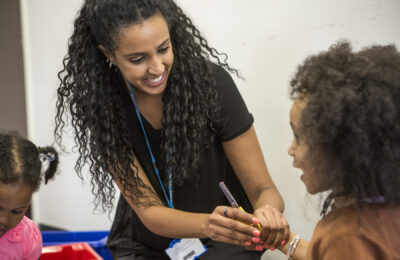
Developing a diverse child and adolescent workforce (CPD64)
-
 Graduate diploma Eligible for Student Visa
Graduate diploma Eligible for Student Visa
Emotional Care of Babies, Children, Young People and Families (EC1)
Explore courses to study beforehand
-
 Master’s degree Eligible for Student Visa
Master’s degree Eligible for Student Visa
Psychoanalytic Studies (M16)
-
 Master’s degree Eligible for Student Visa
Master’s degree Eligible for Student Visa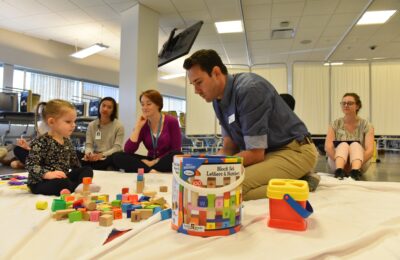
Perinatal, Child, Adolescent and Family Work: a Psychoanalytic Observational Approach (M7, London)
